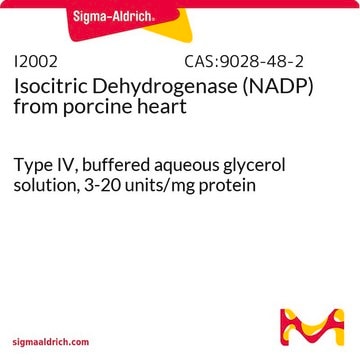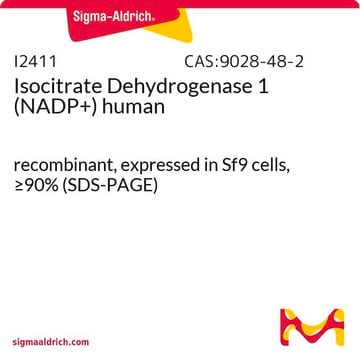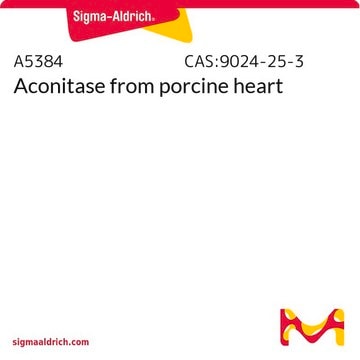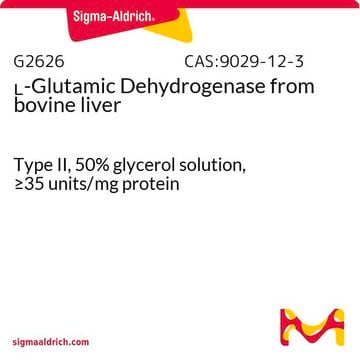I1877
Isocitric Dehydrogenase (NADP) from porcine heart
Type I, 0.5-3.0 unit/mg solid (plus numerous enzyme activities associated with porcine heart)
Synonym(s):
threo-Ds-Isocitrate: NADP+ oxidoreductase, ICDH, IDH
About This Item
Recommended Products
biological source
Porcine heart
Quality Level
type
Type I
form
solid
specific activity
0.5-3.0 unit/mg solid (plus numerous enzyme activities associated with porcine heart)
storage temp.
−20°C
Looking for similar products? Visit Product Comparison Guide
Biochem/physiol Actions
Quality
Unit Definition
inhibitor
Signal Word
Danger
Hazard Statements
Precautionary Statements
Hazard Classifications
Resp. Sens. 1
Storage Class Code
11 - Combustible Solids
WGK
WGK 3
Flash Point(F)
Not applicable
Flash Point(C)
Not applicable
Personal Protective Equipment
Certificates of Analysis (COA)
Search for Certificates of Analysis (COA) by entering the products Lot/Batch Number. Lot and Batch Numbers can be found on a product’s label following the words ‘Lot’ or ‘Batch’.
Already Own This Product?
Find documentation for the products that you have recently purchased in the Document Library.
Customers Also Viewed
Our team of scientists has experience in all areas of research including Life Science, Material Science, Chemical Synthesis, Chromatography, Analytical and many others.
Contact Technical Service













